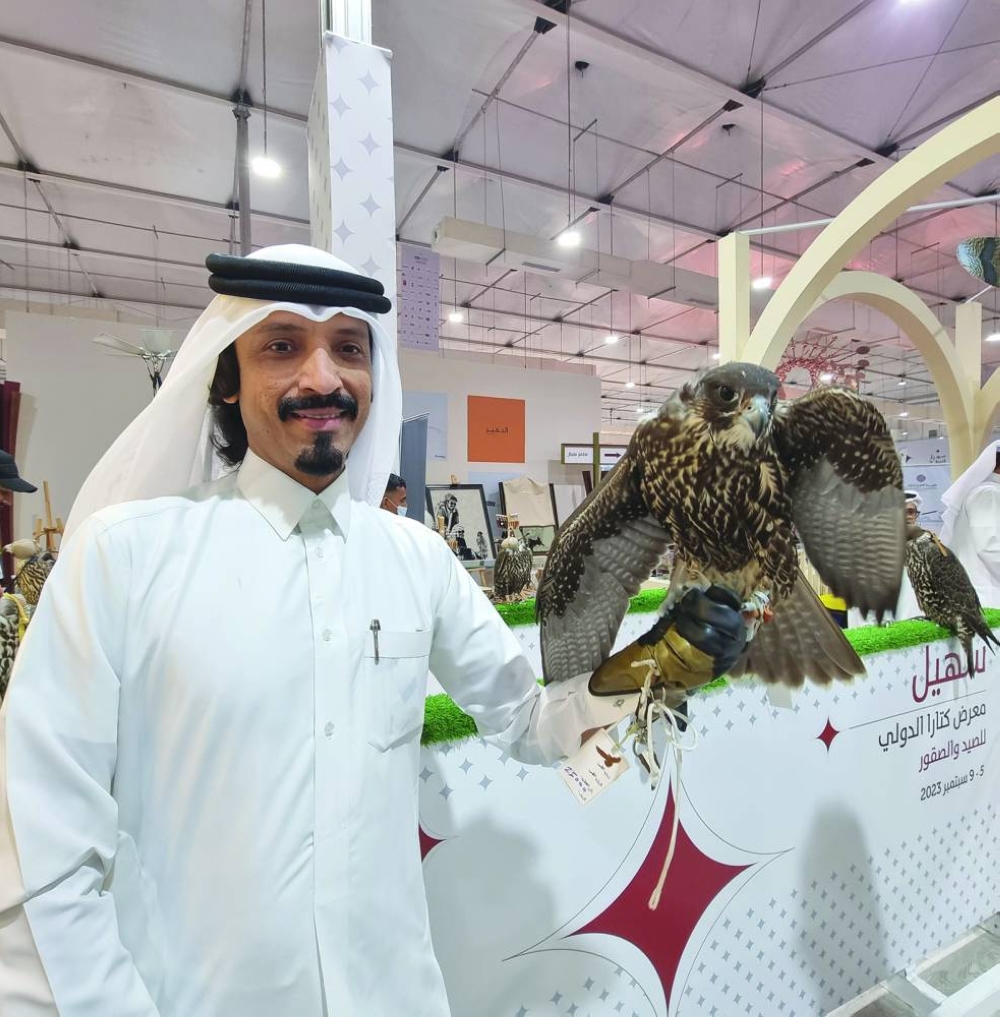The old tradition of falconry remains an enduring symbol of Qatar’s rich cultural heritage, especially in a world that seems to be evolving at an ever-increasing pace, falconer Farhan al-Sayed said.
“Falconry is a very old-fashioned thing, and lots of things remained traditional; they don't change,” said al-Sayed, who also serves as the president of the Qatar-Indonesia Business Council.
Speaking to Gulf Times on the sidelines of the opening of the seventh edition of Katara International Falcon and Hunting Exhibition, S'hail 2023, he shed light on the continued vigor of this age-old practice, stressing the fusion of tradition and modernity within Qatar's falconry community.
'S’hail 2023', organised by Katara - Cultural Village, began yesterday and will run until September 9. “Like in fashion, you have different kinds of falcon hoods, you can see different styles coming in, even in the gloves that we use. We wear gloves on the left hand, but if you compare with the Europeans, they might wear them on the right hand,” al-Sayed said.
He pointed out that these gloves – crafted from leather – are not just for show as their thickness and strength protect falconers from the sharp and powerful claws of the birds. For newcomers to falconry, he said these gloves are essential to prevent injuries.
According to al-Sayed, Qatar's tradition of falconry begins at a young age as Qatari children are introduced to this unique artistic endeavour from their earliest years. He recommends that young falconers start with the smallest species of falcon, known as the kestrel, to foster their passion for the ancient sport.
Despite the challenges posed by the pandemic, he said that enthusiasm for falconry and hunting remains high in Qatar. He added that the falconry season usually begins with an exhibition, a time when the weather becomes more favourable for related activities.
Al-Sayed noted that Qatar holds a special distinction in the world of falconry, boasting the highest density of falconers globally. This prevalence, he stressed, underscores the importance of maintaining this tradition, a heritage deeply rooted in Qatari culture.
He attributed this continuity to the vision of Qatar's leadership, saying: “I would give the credit to His Highness the Father Amir, who inspired this tradition during his term as the Amir of Qatar.
“You can see the falcon souq at Souq Waqif and the state-of-the-art falcon hospital, which ensures the well-being of falcons from various corners of the world, including the UK, Spain, and Europe,” al-Sayed said.
He reiterated that the growing popularity of falconry and hunting is a testament to the enduring traditions established by His Highness the Father Amir and continued under the leadership of His Highness the Amir Sheikh Tamim bin Hamad al-Thani.
Owning a falcon in Qatar, particularly from childhood, is a matter of prestige and a symbol of the nation’s deep cultural roots, he said.
Falconry, an ancient tradition dating back thousands of years, has long been seen as a partnership between falcon and human, al-Sayed said.
“In the past, falcons were used for survival. The falcon's survival ensured the master's survival, and when combined with a team of camels and saluki breed dogs, they formed a formidable hunting force capable of hunting various game, including deer. The falcon would slow down the prey, and the saluki would bring it down,” he added.

Farhan al-Sayed with a falcon at the seventh edition of Katara International Falcon and Hunting Exhibition. PICTURE: Joey Aguilar

